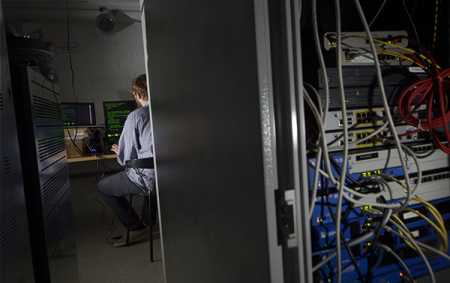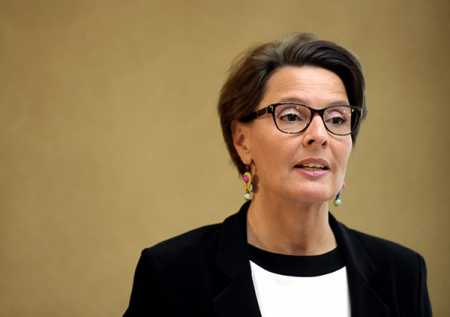Thu, 02 Jun, 2016 12:08:15 AM FTimes – STT Report, Jun 2  A man was seen to type on a keyboard in a computer server room in Helsinki. File Photo – Lehtikuva. The government plans to deregulate the licensing procedure of setting up broadband internet connections to ensure that most households get connected with Internet by the turn of the next decade.
According to Transport and Communications Minister Anne Berner, the ministry seeks to deregulate and facilitate the authorisation procedure so that the construction of broadband infrastructure gets faster.
“This way, operators will be willing to invest to make broadband available in both urban and rural areas,” said Berner.
Major telecommunication operators have committed to invest a billion euros in the development of broadband infrastructure over the next 8-10 years, said the Finnish Federation for Communications and Teleinformatics (FiCom).
According to the federation, the investment will enable fast broadband in almost all households by 2023. The operators include DNA, Elisa, Sonera, and the Finnet Group.

Transport and Communications Minister Anne Berner spoke on occasion of launching broadband deregulating program in Helsinki on Wednesday. Photo – Lehtikuva. According to Elisa Chief Executive Officer Veli-Matti Mattila, the construction of broadband is worthwhile. The current demand for broadband will only increase, as various entertainment services, such as television content, are increasingly shifting to the Internet.
“In the past, funding permits were difficult to obtain, and the demand was smaller,” said Mattila.
The construction of the broadband infrastructure will offer the possibility of using broadband, but not everyone will necessarily use it.
According to Berner, the aim is to make the cost of broadband increasingly competitive. A competitive price makes it possible for consumers to have access to e-services.
Getting broadband in rural areas is important, according to Berner, because of agricultural and forestry entrepreneurship.
“For example, small entrepreneurs are doing more and more work remotely, so they are completely dependent on Internet connections. There would not be fixed broadband access available everywhere, so it is important also to promote mobile Internet,” said the minister.
Mobile development refers to, for example, the development of fifth generation, or 5G, mobile phone network technology.
More News
|
|
Finland Times
| Monday, 05 January, 2026 |

